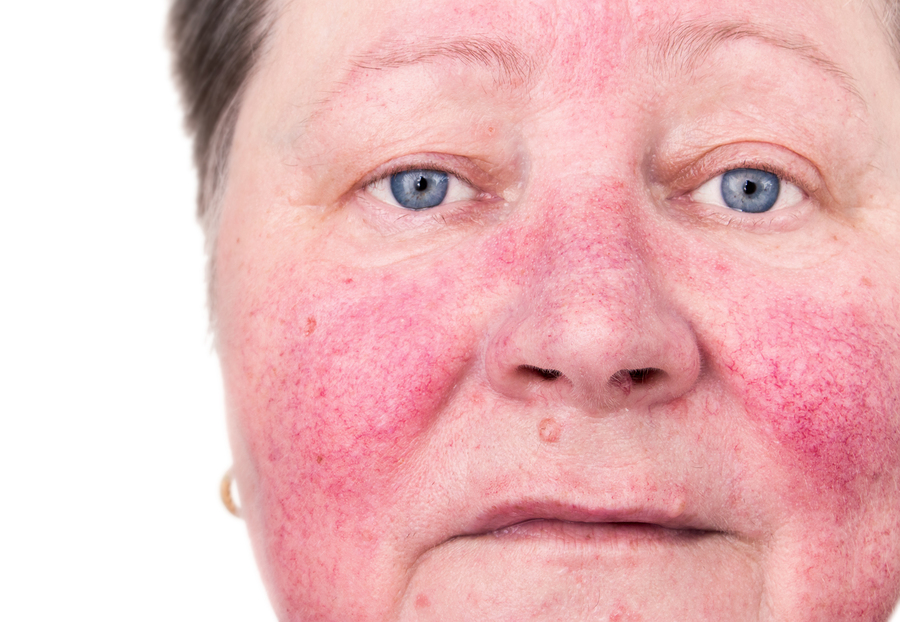April is Rosacea Awareness Month
April 25, 2018
Family caregivers should learn all they can about the skin condition known as rosacea. That’s because it often appears in elderly adults but may go undiagnosed due to a focus on other more serious health issues. April is Rosacea Awareness Month, and there’s a lot of information out there to help family caregivers understand the causes, symptoms, and treatments for rosacea in elderly adults.

What is Rosacea?
Rosacea is a skin disease that results in swelling, redness, and small pustules that appear on the face. In some cases, the rosacea can also extend to the ears, neck, shoulders, and chest. It’s common for those with rosacea to also experience stinging and pain in the eyes. It’s common for rosacea to be misdiagnosed as something else, such as allergies, a skin rash, or sunburn.
Scientists are not sure what causes rosacea and there is currently no cure. Rosacea is not contagious and there is no reason for people to be afraid to interact with an elderly person with the disease. Family caregivers and home care assistants will not contract rosacea by touching skin. Knowing the signs and symptoms of rosacea can help family caregivers in determining whether their aging loved one needs to see a doctor about it.
What are the Risk Factors for Rosacea?
This skin disease is widespread and affects adults of all ages and races. Fair-skinned women have a slightly higher risk to develop rosacea, and it is estimated that around 16 million people in the United States suffer with it. Scientists are not sure of the cause of rosacea, but clues indicate an association with the immune system. Rosacea affects people aged 30 and over with many cases occurring in seniors over age 65.
There are definitely some triggers for rosacea flair-ups that family caregivers and home care aides can help seniors avoid. Among the most common triggers are sunlight, certain skin care products, makeup, exposure to wind, spicy food, and hot baths and showers. Some seniors may be fine with some triggers and notice flair-ups with others.
Treating Rosacea in Seniors.
Rosacea can be irritating and even painful for elderly adults. Seniors may feel tingling, burning, and itching due to rosacea because their skin is less supple, thinner, and more fragile. To help treat the skin, home care assistants should only bathe or shower the elderly adults in lukewarm water and blot their skin dry with a towel. Prescription medication from a dermatologist can help cut the redness and swelling.
Rosacea is a disease that can significantly affect an elderly person’s quality of life. That’s why it’s a good idea for family caregivers to learn about the skin condition during Rosacea Awareness Month and see whether their aging relative may be struggling with it.
If you or your loved one is looking for home care in Palo Alto, CA, please call Familiar Surroundings Home Care.
Santa Clara County: (408) 979-9990
San Mateo County: (650) 353-9777
Santa Cruz County: (831) 480-3990
Source:
https://www.seniorhealth365.com/health/rosacea-in-the-elderly/


